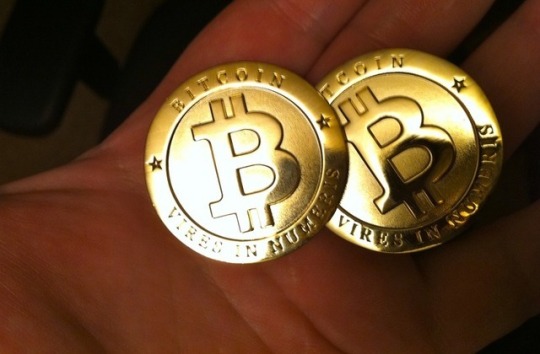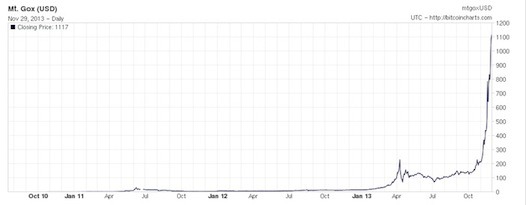#the currency exchange rate of our money sucks man
Note
Can you list 5 coolest thing at Malaysia
- food!!
- holidays come in itsy bits (this year however,,,)
- no natural disasters?
- no need for winter gear because the weather here is the sun
- tumblr isn't that well-known here so no one i know will ever find this shit blog :)
#i didnt know summer holidays were like a good 3 months before high school lol#our holidays here are one week/two weeks some time after taking school exams#and public holidays are sprinkled throughout the year so its cool#one month and a/two week(s) of holidays at the end of the year too#id forget everything at school if we're having a whole 3 months lmao#the weather here is the sun#or the rain during rainy seasons#that's it#dont need to spend money on jackets or other stuff to keep you warm#unless you want to i guess#just grab a umbrella and you're good to go 😁#also food is good#fast food is more expensive than having a normal meal outside here i think#rarely any hell earth decides to unleash happens here#usually flood happens but that's pretty rare too and it's not that serious anyway#gonna say some uncool things too bc im a lousy critical citizen#the currency exchange rate of our money sucks man#everything is so expensive on the other side of the world#people (from where i live) are imbeciles at following road safety#especially motorcyclists#i swear theyre trying to get someone or themselves killed#traffic lights exist for a reason?????#there isnt much lgbt rep here too#it aint be very favored#which sucks#also i have to wait an extra day for a new episode of rwby lmao#12am but its a rather neat time to be excited#😂😂😂😂
34 notes
·
View notes
Link
Bitcoin is further evidence that the “glass ceiling,” the idea that women are kept from reaching the ranks in corporations and in financial success because of a nebulous “patriarchy,” is nonsense.
Economists have disproved the glass ceiling on more than one occasion in the past, so the more well-read will not be shocked by this. Yet, the existence of the glass ceiling has remained a major talking point for feminists. The silence of feminists during the rise of Bitcoin has been deafening.
Bitcoin is an interesting case study because it is modern and doesn’t have the excuses that you hear when the glass ceiling argument breaks out. There is no Bitcoin establishment or “old boys’ club,” because Bitcoin has no establishment. Bitcoin is hardly established, and there is no one central authority.
Feminists claim that “institutions have always had biases” and “it’s a man’s game,” but Bitcoin didn’t come with any biases. It didn’t come with anything. It was nothing ten years ago, and its meteoric growth is well-known.
Bitcoin was created in 2009, a time where women had established themselves in various industries, most notably tech (see: Meg Whitman, Sheryl Sandberg). Nine years later, only three percent (at most) of Bitcoin use (suggested through Bitcoin community engagement) is by women.
Is this the patriarchy keeping women from investing? No. There is nothing that stops women from investing in Bitcoin. Women don’t even need to go to banks to introduce an intermediary which could discriminate against them.
So why aren’t more women investing in Bitcoin? There are a number of reasons for this.
1. Bitcoin is Boring

There are no emotions involved in cryptocurrency investing. Women are more likely to get involved in areas that stir their emotions, from the social sciences to humanitarian work to political rallies.
Bitcoin is mathematical. It was created with a white paper and some computer programming. Since more women take up studies in the arts or humanities than math, it is more difficult to understand the concept and takes more work.
Also, because women prefer soft subjects to hard ones, women end up in jobs related to the arts and humanities versus the hard sciences. They will be more likely surrounded by men and mostly women that also did not study math and computer science and will not be interested in—or understand—Bitcoin.
In addition, Bitcoin isn’t tangible. You can’t feel it in your hands, so you cannot wave it around to boost or lower your status without hopping on a male-centric Reddit page (HODL!!). This reduces the emotional connection to it because there is no physical thing to attach a feeling to. Where money can be a sign of prosperity or options, the numbers in a bit wallet are less tangible.
2. There Is A Lot Of Risk

Women generally value security and strength, which we have seen in relationship dynamics and the number of careers chosen as opposed to entrepreneurs. Men are more willing to take chances.
One of Bitcoin’s tenets is that it is less risky than fiat dollars because it is not subject to inflation and to crumbling governments, so it should be more stable. However, Bitcoin is still young and has a wildly fluctuating value. It is this perceived value that people see as risky, not the idea. It is these wild fluctuations in value that appeal to men.
Bitcoin is also a long-term investment. Bitcoin believers believe the cryptocurrency will be more durable than fiat and will be a superior currency. Women are much more likely to spend and distribute wealth than to build it through investing.
3. Bitcoin Is Competitive

Men eat what we kill. We evolved to eat the animals we hunted, and we still do that in the modern economy. In a tribal setting, the man that hunted the most for his tribe was rewarded with more power and more women to bang. We evolved to be competitive and to fight for the top spot.
These days, men are more likely to participate in sports and more likely to try new things to get ahead (see here). Bitcoin is competitive with other cryptocurrencies as people (men) race to market and grow their currency of choice. Bitcoin is also competitive as a store of wealth. The more men own, the more men can use our primal brains to associate with power and sex.
These are the reasons why only three percent of Bitcoin users—a completely decentralized, open world without bias—are women. These are the same reasons that men make more money than women in the workplace. It isn’t the patriarchy. It’s the evolutionary and behavioral differences in men and women that decide the numbers.
Men are competitive, find freedom in long-term wealth, and are more excited about new ideas and a new, selfish way to increase wealth. At least, more than women.
Read More: Bitcoin Is Creating A New Class Of Millionaires

Right at this very second, the largest transfer of wealth in the history of humanity is underway. It has been going on since 2009, but it’s really picked up speed in the last 6 months. A couple of days ago, I wrote a detailed post on RVF explaining Bitcoin in layman’s terms. I strongly suggest that every reader of this post spend 10 minutes on that explanation, but if you’re too lazy then here’s the summary:
Bitcoin is the world’s largest cryptocurrency, essentially money for the Internet. It is an open source Internet protocol, like HTTP. It was hypothesized and first developed by an anonymous author or group under the name “Satoshi Nakamoto”.
Bitcoin is pioneering the idea of a deflationary currency, something which has never been possible before in humanity’s history. Gold and silver come close, but not all of it has been dug out of the ground yet. The only two possibilities for Bitcoin are that its value goes to zero, or increases. There is no possibility that the value ever decreases or stabilizes (in the medium term). In the long term, Bitcoin’s value will increase at a decreasing rate, but never stop, as it can be lost but not replaced.
Unlike gold and silver, Bitcoin can be essentially perfectly subdivided, and transmitted anywhere on the planet for almost nothing between any two parties with an Internet connection.
Bitcoin is decentralized like the Tor network, so it cannot be regulated or controlled by any government or authority body.
One Bitcoin has climbed from less than $200 to peaks over $1000 in the last month. Every currency and medium of exchange on the planet is down against the Bitcoin over the last year, including gold and oil.
Innovation Means Winners And Losers
There is a hard limit of just under 21 million Bitcoins. That means less than 1 in 300 people could own a full one, even if evenly distributed, which they are not (there’s already a number of investors that own hundreds or thousands or more).
One Bitcoin can be subdivided down into 100 million Satoshis (the smallest unit). Even if the world’s money supply was entirely Bitcoin, one Satoshi would be worth just a couple of cents in today’s USD, allowing for small transactions. If this were to happen, many many people would be reduced to poverty, living their entire lives on a few Millibits (thousandths of a Bitcoin) or Satoshis.
The new 1% is anyone that currently owns at least one Bitcoin, the world just doesn’t know it yet. Like this, but on a world scale. For the most part, this includes white, technically-minded, middle-aged American men but increasingly comprises Chinese technophiles and a cross section of society in economically unstable countries like Cyprus and Argentina.
The US government is starting to clue in and realises it needs to know what’s going on, but all they need to understand is that they can benefit from supporting it, or be trampled as they attempt to regulate something beyond their control.
I can’t say it any better than one of the commentators on the linked article (although I disagree about the inevitability of war and death), so here’s “Dumbhandle”:
US Government: Pay attention. You have almost destroyed the future of our country by retarding bitcoin usage in the US with the ham fisted application and mismanagement of various regs. Wealth is fleeing already to China and accelerating. You have a very short time to deregulate in order to attract bitcoin wealth to the US before the bitcoin black hole inevitably sucks in all world fiat currencies and the flow of XBT wealth to China and other counties accelerates.
Against all odds, your Chinese colleagues have realized this and are working as a team to effectuate capital accumulation over there. They are winning, because they understand fiats and the petro are finished. You need to immediately pull in some experts from the bitcoin community to explain this to you so you can take proper emergency evasive action to reverse the flow back to the US. Here is your goal: deregulate to reverse the capital flight. Then watch the global conversion of fiat to bitcoin. Watch bitcoin accumulate in the most innovative place in the world, the US. Sit back and watch a golden age bloom here and it spreads globally. Any other course will result in wars and death on a massive scale. Now we will watch you screw it up.
Bitcoin Doesn’t Care
Just like hypergamy and evolution, Bitcoin doesn’t care.
It doesn’t care if you didn’t know
It doesn’t care if you don’t understand
It doesn’t care if you don’t believe
The critics will cry that “Bitcoin is just a bubble” (alternatively: pyramid scheme), and they’d be right. It’s a bubble in exactly the same way as the US dollar, which also gets its value entirely from community consensus (the paper it’s printed with cannot be eaten, used as construction material and is pretty poor fire fuel). I am more prepared to trust a democratic, distributed, deflationary technology than the self-serving government printing press, and I suspect a lot of others might too. I’m not alarmed by Bitcoin’s incredible growth, it’s just following the same S curve that tech giants like Facebook and Twitter tend to.
Absent any flaw being found in the source code (which has been publicly available and reviewed for years), or more likely one being introduced by the core development team (still a vanishingly unlikely proposition), I believe 1 Bitcoin will be worth at least US$ 100 000 by 31st December 2016. The Winklevoss twins think even higher. Max Keiser thinks even higher. Even Peter Thiel (Paypal co-founder) agrees the revolution has begun. Although ultimately, we’re all pure speculators on a very untested new technology.
The only other potential issue is advances in quantum computing that smashes apart current encryption standards, but that would cause far larger problems with all online privacy. If anyone would come out on top it’s the forward-thinking and technically-minded Bitcoin community.
Adapt or live with regret among the masses. You have been warned. At the very least, do some reading and make an informed decision.
Bitcoin daily closing prices on MtGox for the last 4 years (to Nov 29), from sub-5 dollars to over $1000. The closing of illegal, anonymous online marketplace Silk Road knocked the price off for a while, but it freed Bitcoin from any accusations of being useful only for drug deals. The road up is going to be rocky, but there is no stopping the train now.
NB: In the time taken for this post to go through the ROK submission and editing process, closing prices have doubled. The original version of this article had the graph below finishing at $450.

https://www.returnofkings.com/10595/there-is-no-hedge-against-inflation
1 note
·
View note
Text
“In the Poor Man’s Pocket”, an Argumentative Essay Discussing Poverty
Ever since there have been human beings, there has been someone who owned more than another. Even before proper currency when early man would trade items for more useful items, there was always someone who had something more or something better. Jealousy, greed, and poverty have followed the human race since we first began. Then came money. Coins or bills that could be exchanged for goods and wares. It’s always been a race to procure the most money. Money became equal to power. Whoever had money could control whoever did not. This is what the human race has evolved to. We do not focus on helping our fellow human, we focus on stepping on his head to climb over him to the top. Acquiring wealth has taken over the human mindset. But what about the people that are getting stepped on? How do they fit in? There has to be somebody at the bottom to be the foundation of the ones at the top. Who are they on top of? The answer has been around since humans have been: the poor. Poverty is not anything new. As long as there have been humans, there are people in at least some form of poverty.
Poverty is estimated to affect some 43.1 million people in America and the estimate does not even count the homeless (Center For Poverty Research). One in six Americans lives below the poverty line (Deaton, Angus). There are many different views on poverty. Some people believe that poverty is the person’s fault. That they are not willing to work or to even try anymore and want the government to support them. Others say that being poor is not the poor person’s fault in that sometimes they have to make unwise decisions just to survive another day. To pay the next bill before the due date or to buy their family food again they might have to use their rent money which would end up putting them in a debt that can take a long time to pay off and if they can not pay it off, things get even worse. Poverty can be a slippery slope that’s hard to escape. While there are different opinions on whose fault poverty is, it does not change the fact that poverty is here and very real and that it is affecting a lot of people every single day.
Diligent work adds up over a lifetime. While invisible in a day-to-day routine, diligence and hard work can always be appreciated when looking back. Diligence is hard to keep up with, especially when people are giving free handouts that seem easier than keeping track of daily routines. It is highly believed that people in poverty are in poverty because of their lack of diligence and strict budgets (Dreher, Rods). Many people fall into the temptation of credit cards and are allured by the thought of buying what they like when they like. But credit cards can be a black hole that sucks the user down into a deeper poverty. A large part of the problem is a lust for wealth. When someone poor sees a wealthy man, he envies him and lusts after his money. Many poor people have spent every loan or credit they could get to buy a nice car, a big house, a fancy TV, or designer clothing. They believe that if they play the part of the rich, they can pass among society. And mostly, poor people want an immediate satisfaction. It is all about happiness and most believe that, in this world, wealth is happiness. But money only brings a temporary fix. A sheet to cover up the real underlying problems. And, sadly, many people just give up. When looking at people in poverty there are many prominent features such as spending all their free time watching TV, eating a lot of junk food, complaining about lazy spouses, ungrateful kids, stupid bosses, and controlling parents. Often a poor person is good at making excuses and blames any obstacle in their way on whoever they can. It is also common for them to get their adrenaline rushes from horror movies or doing stupid things to show off and, finally, that they always respond aggressively to critique (Nikitina, Arina). Being poor is not always about how much money a person has. It is about the mindset of the person. If they accept poverty and blame it on others and try to ignore it instead of focusing on a goal and reaching that goal, then they will be poor forever and no amount of “free” government handouts will solve that.
Many of these beliefs, however, are said to be myths (ATD Fourth World). Many rich people are prejudiced on the fact that they think they are better than any of the poor just because they have money. One of the biggest sayings that goes around is that poor people do not want to work (Nikitina, Arina). But the fact of it is, there are more people in poverty working than not. It often happens that a person can try very hard to get a job but there just are not enough jobs to go around. Another myth is that the U.S. does not have that much poverty. Some people believe that poverty in America is a myth. It is also often assumed that the rate of drug usage is higher in poor communities. That is false. Many studies have shown that higher income correlates to higher drug use. And oftentimes wealthy people believe that they will never be poor. So they keep spending money and getting into debt and eventually it catches up to them. And the biggest reason why is that the system is against the people. America currently is not working to bring everyone up so they have the same opportunities as their neighbor. It is working to help the rich get richer and the poor to get poorer. Many wealthy people do not care about the less fortunate. They are just looking for the next way to get more money. And sometimes that even includes tricking people with false pretenses.
In my personal belief, I say that both are correct. The human race is so diverse and different that such a large amount of people can not be the same. There are some people who would rather just let the government take care of them and pay for their life while they sit around and watch TV or play video games. But there are also ambitious people that could work their whole lives for something. Some people have just given up because it is too hard and they are tired and they resort to alcohol or drugs and let the government take care of their bills or they join the ever growing amount of homeless communities. The people that are constantly at work and struggling to survive even if everything is against them are the diligent. Sometimes diligence does not pay off though. Despite hard work over a lifetime it often reaps nothing. There have been many people who have lost their life to the fact that the system is just not in their favour. Maybe it was the person who would be the best president or the next Einstein but nobody ever knew because they had no way of speaking out because they did not have the wealth or the high standing in society for anyone to know. Poverty in America is a huge problem and it is not just about some people being greedy, while that is a portion of it, it also has to do with the mindset of the person in poverty in how they control themselves from it (Ganim, Carole). A person has a bad life because of their attitude about it, not their circumstances (Dreher, Rod).
Sources:
ATD Fourth World. “Poverty Myths”, 4thworldmovement.org, Accessed April 10, 2018. https://4thworldmovement.org/overcoming-poverty/poverty-myths/?gclid=CjwKCAjwwbHWBRBWEiwAMIV7E832xhnoovslGY88XfMA_RD3dbOMipCCUfxJTfw8wW11MYKfjC8OThoCdJoQAvD_BwE
Deaton, Angus. “The U.S. Can No Longer Hide From Its Dep Poverty Problem”, www.nytimes.com, The New York Times, January 24, 2018. Accessed April 10, 2018. https://www.nytimes.com/2018/01/24/opinion/poverty-united-states.html
Ganim, Carole. “Poverty Is Not The Enemy”, www.thehuffingtonpost.com, Huffington Post, January 15, 2014. Accessed April 10, 2018. https://www.huffingtonpost.com/carole-ganim/poverty-is-not-the-enemy_b_4595947.html
Dreher, Rod. “When Poverty Is The Fault Of The Poor”, www.theamericanconservative.com, The American Conservative, August 4, 2014. Accessed April 10, 2018. http://www.theamericanconservative.com/dreher/poverty-the-fault-of-the-poor/
Center For Poverty Research, “What Is The Current Poverty Rate In The United States?”, poverty.ucdavis.edu, University Of California, Davis, December 18, 2017. Accessed April 11, 2018. https://poverty.ucdavis.edu/faq/what-current-poverty-rate-united-states
Nikitina, Arina. “The Hidden Psychology Behind “Poor” People’s Mindset”, www.arinanikitina.com, Breakthrough With Arina Nikitina. Accessed April 25, 2018. https://www.arinanikitina.com/the-hidden-psychology-behind-poor-peoples-mindset.html
Originally Written: May 7, 2018
0 notes